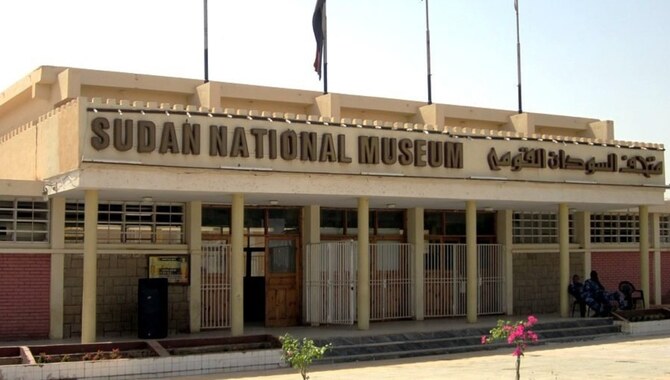PARIS: The UN cultural agency on Thursday raised the alarm over reports of armed groups looting several museums and heritage institutions in war-wracked Sudan.
“UNESCO is deeply concerned about the recent reports of possible looting and damage of several museums and heritage institutions in Sudan, including the National Museum, by armed groups,” it said.
It said it had been monitoring the impact of fighting on Sudan’s heritage, cultural institutions and artists since hostilities broke out in 2023.
“In recent weeks, this threat to culture appears to have reached an unprecedented level, with reports of looting of museums, heritage and archaeological sites and private collections.”
It said it was particularly concerned by reports of looting at the National Museum of Sudan, as well as the Khalifa House Museum in Omdurman and Nyala Museum in South Darfur.
The National Museum, which opened in the 1970s, has been home to more than 2,700 objects including some important pieces from the ancient Egyptian Pharaonic dynasties and Nubian culture.
“UNESCO reiterates its call upon the public and the art market involved in the trade of cultural property in the region and worldwide to refrain from acquiring or taking part in the import, export or transfer of ownership of cultural property from Sudan,” it said.
The agency said it was planning training in Cairo for members of law enforcement and the judiciary of Sudan’s neighboring countries by the end of the year.
War has raged since April 2023 between the army, under the country’s de facto ruler Abdel Fattah Al-Burhan, and the Rapid Support Forces (RSF), which are commanded by Burhan’s former deputy Mohamed Hamdan Dagalo.
Since the start of fighting, UNESCO says it has supported emergency measures in five other Sudanese archaeological museums, including packing “endangered collections” and preparing “safe havens” for them.
UNESCO warns of possible looting from Sudan museums
https://arab.news/w8man
UNESCO warns of possible looting from Sudan museums

- “UNESCO is deeply concerned about the recent reports of possible looting and damage of several museums and heritage institutions in Sudan,” it said
- It said it had been monitoring the impact of fighting on Sudan’s heritage, cultural institutions and artists since hostilities broke out in 2023
RSF drones hit civilian sites in Sudan’s North Kordofan

- According to the sources, the strike targeted classrooms at Kordofan University for the second time this week
CAIRO: The Sudanese paramilitary Rapid Support Forces carried out a drone attack on multiple civilian sites in Al-Ubayyid, the capital of North Kordofan state, in the early hours of Friday, field sources have told Al-Arabiya and Al-Hadath.
According to the sources, the strike targeted classrooms at Kordofan University for the second time this week.
The city’s medical supply center and a private home in the Riyadh Al-Salihin neighborhood were also hit.
No civilian casualties were reported, the sources said, though the buildings sustained material damage.
A military source told the two outlets that army ground-based defenses intercepted and shot down about 11 drones involved in the attack on Al-Ubayyid.
The use of drones has escalated in recent months, with both the Sudanese army and the RSF increasingly relying on unmanned aerial systems in their operations.
The RSF has been accused of deliberately targeting civilian infrastructure in Kordofan.
Meanwhile, the army has continued to track and strike RSF supply lines in Kordofan and Darfur.
More than 100,000 people have been displaced from the Kordofan region in just over three months, according to the UN, as violence between the army and RSF intensifies with the conflict nearing its third year.














